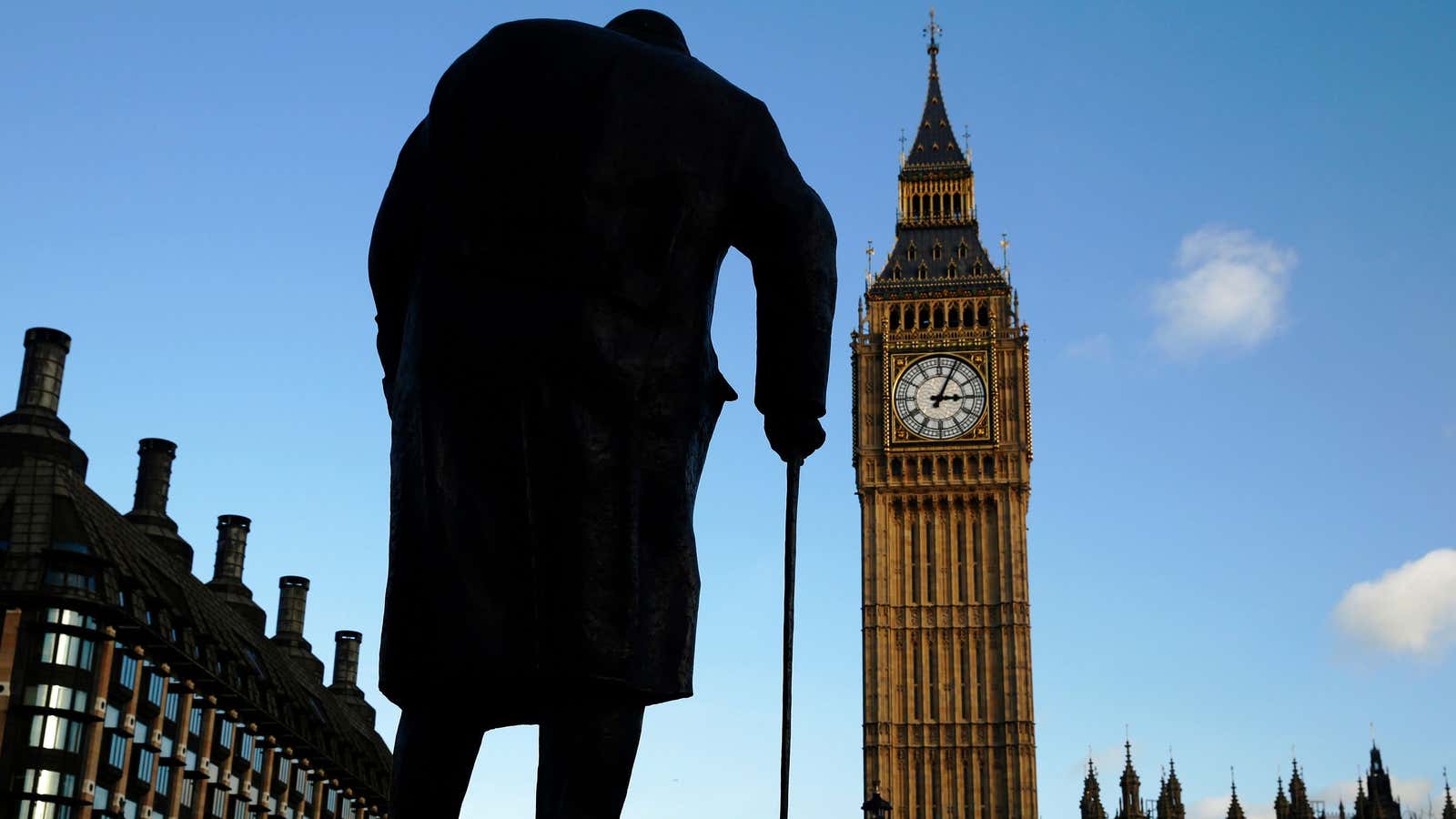What is the height of the London Eye in feet? Who started the first curry house in the UK, and what street it was on?
These are just a few of questions listed in the British government’s official handbook on which it bases the UK’s citizenship test, known as the Life in the UK test. This study guide and exam, which immigrants have to pass to become naturalized citizens, has been criticized by the House of Lords as inaccurate and largely irrelevant to British life.
In a report published yesterday, the Lords Committee on Citizenship and Civic Engagement say that the third edition of the handbook, published in 2013, contains “factual errors.” The handbook incorrectly states the number of parliamentary constituencies and has facts which were correct at the date of publication, but “which might reasonably have been expected not to be accurate for long.” For example, the handbook states Margaret Thatcher is still alive, which was true for only two months after the book’s publication.
Since 2005, all immigrants interested and eligible to become British citizens have to pass a citizenship test. The 45-minute test features 24 questions about British customs, law, and history. It is based on a 80-page Life in the UK manual, which was last updated in 2013. Approximately 70% of applicants pass the test, which requires getting at least 18 questions right. The pass rates vary widely by country or origins; Australians had a pass rate of 98%, but Bangladeshis only 44%.
The Lords committee also criticized the study guide’s inclusion of several hundred dates. “Given the purpose of the book, applicants might believe they could be tested on them, but in fact they seldom appear in tests,” the report notes.
The handbook also contains “inconsistencies,” according to the report. While the study guide makes no mention of the UK Supreme Court, it does discuss most lower courts. There are also some important omissions; the current edition of the handbook doesn’t require knowledge about the National Health Service, educational qualifications, subjects taught in schools, how to contact emergency services, and “other everyday knowledge all new citizens should know,” the report says. The committee argues that the test and handbook should focus on knowledge required for “active citizenship,” not trivia.
In March of this year, the government announced a review of the Life in the UK test. The Lords committee welcomed this review, and urged that the handbook accompanying the exam be entirely re-written.
